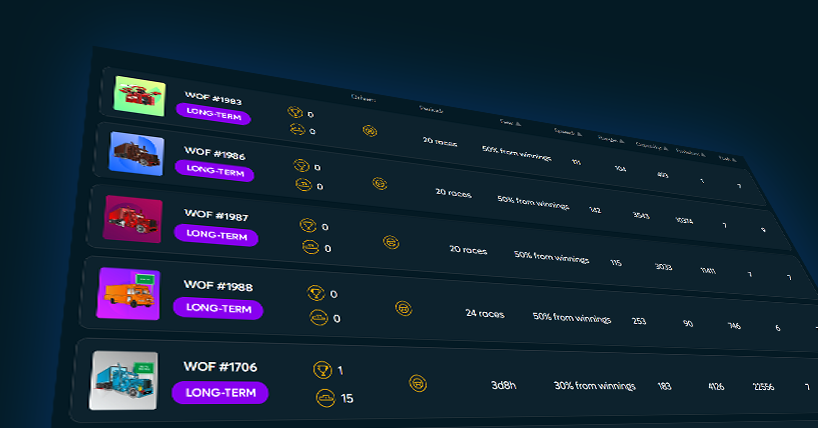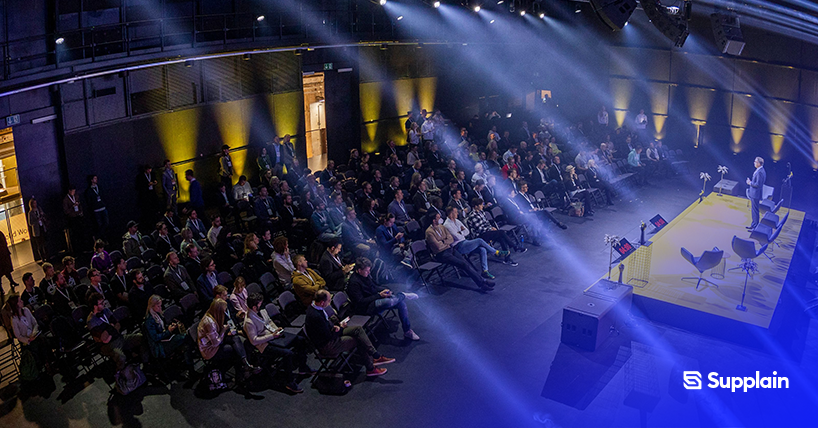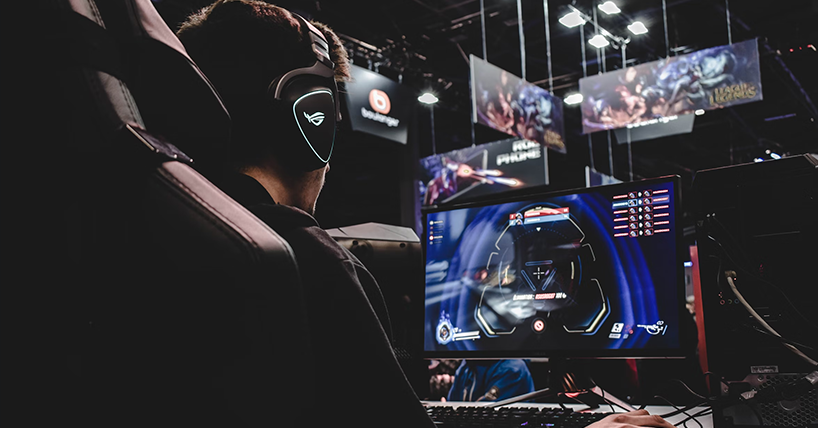
As the NFT space widens, it will find more token offerings. As unique and diverse as these offerings are, the hefty prices still put off those seeking to enter this new digital realm.
Buying and collecting NFTs is undoubtedly not cheap.
Even the lowest-priced NFTs from popular projects, like Cryptopunks and Bored Apes, are not affordable for those seeking to benefit from holding such premium NFTs.
This is why NFT renting is now the next big 'thing' to holding premium NFTs themselves. It is what it says, renting out NFTs and providing others with the experience of owning a said NFT (and enjoying the utility that comes with it) for a limited period.
Curious how NFT renting would work? Let us find out.
What is NFT renting?
NFT renting is where individuals who do not hold or own a particular NFT but would either like to utilise its utility or experience it for a limited time 'borrow' the NFT from a relevant platform that supports NFT rentals.
A person who owns a specific NFT can rent it out to a borrower who needs it for a short period. NFT rental marketplaces use Defi-like blockchain technologies to facilitate secure transactions and guarantee that the NFT is returned to the owner once the rental period expires.
Why rent an NFT?
For borrowers, NFT renting is a more affordable way to tap into the benefits of some premium NFT utilities, such as access to exclusive members-only content, events, and tickets provided by the NFT without having to pay money to buy them.
For the borrower, it is the same as renting a video game or a DVD from an online catalogue—they view the content and then return it. No long-term commitment is required.
Those renting out their NFTs can obtain a source of income if they are not accessing the utility behind the NFT or if it remains idle, lying in their NFT wallets.
Many NFTs are unused by their owners for most days or weeks. Whilst these owners are not using their assets, they also have little interest in selling them should they wish to take advantage of their utility. Thus, any utility that the NFT generates is wasted – sitting unused in the wallet.
Thus, NFT renting has opened up a secondary economy in the NFT industry.

For example, to eat at Gary Vaynerchuk's members-only private restaurant Flyfish Club, diners must hold or purchase a Flyfish Club NFT that serves well as membership. Should the Flyfish Club NFT holder not actively use it, they can rent to borrowers and make a profit on the side.
With the gaming, art and music industries entering the NFT space, NFT rental will become more mainstream, and the demand for NFT rentals will skyrocket.
How does NFT renting work?
There are two ways NFTs are rented out—collateralised renting and collateral-less renting.
Collateralised lending
NFT holders can list their NFT assets on an NFT marketplace that permits NFT lending and borrowing. Interested borrowers searching for a specific NFT can ask to borrow it subject to contract terms defined between the lender and the borrower. The NFT in question is then deposited into a smart contract for a period agreed upon between both parties.
To protect the lender and their NFT, the borrower must deposit collateral – likely more than the NFTs value. The value of each NFT is presumably verified using the current pricing listed online. Furthermore, the renter will pay a rental fee to cover the cost of borrowing the digital asset.
These terms are formalised in a smart contract that includes rental duration, the amount of collateral required and other terms and conditions mutually agreed upon.
The contract goes into effect upon agreement between the lender and renter on all smart contract parameters. NFT renting has begun - the NFT temporarily passes to the borrower, who can then reap the benefits of holding that NFT for the contract's duration.
When the contract expires, the smart contract initiates the return of the NFT to the renter, and the collateral is returned to the borrower.
Collateral-less renting
NFT rentals can also conclude in another, more simplified manner. This method is where the NFT never enters the borrower's hands for the lender. Simultaneously, individuals who borrow are not required to deposit any collateral, thus minimising the impact on their financial assets.
Collateral-less renting occurs in much the same way as collateralised lending.
NFT holders list their assets on an NFT marketplace, and individuals initiate the NFT borrowing process. The NFT asset is then deposited into a smart contract, with the contract terms defined between the lender and the borrower.
However, there is a slight difference.
A wrapped token of the original NFT is minted in a collateral-less renting arrangement. A wrapped token is an asset like cryptocurrency or an NFT that is wrapped using code to be utilised on a non-native blockchain and backed by the original NFT.
The lender and borrower mutually agree upon a rental fee and duration, and the smart contract goes into effect – issuing the wrapped NFT to the renter.
Once the smart contract expires, the wrapped NFT is returned to the contract and is 'burned' so it cannot be used again.
NFT rentals and their impact on GameFi
As with newer technology, the gaming industry, particularly the GameFi sector, is one of the first adopters of renting NFTs. Previously, game ecosystems were closed, with players spending hours playing and earning in-game assets, not being able to monetise them within or off of the platform.
This has now changed with NFTs and the advent of NFT renting.
With NFTs, for the first time, they can move their earned in-game assets to a marketplace and sell them for actual earnings, i.e. fiat currency. Better still, players who wish to earn on their existing purchases can place the same NFTs on a marketplace supporting NFT borrowing and earn money whilst they sleep.
From avatars to in-game vehicles, there is nothing that a borrower cannot rent, provided the entity is represented as an NFT.
Within the Metaverse itself, the next land grab is occurring in the digital world. As early adopters buy land within the gaming and metaverse-focused platforms, an NFT land rental industry has emerged.
NFT land rentals allow future community members to set up the necessary infrastructure to enjoy their time spent online. Whether a store, garage or house needs to be built on virtual land, NFT land renting will soon create digital landlords and NFT land renters.
It is why NFT renting will become the future.
The future of NFT renting
NFTs are not going anywhere and are certainly not a fad.
NFTs will impact all industries in the coming years, making the NFT rental industry more mainstream. NFT renting will empower more those wishing to partake in the web3 economy regardless of whether they own any asset or do not have the financial means to buy them.
Both lenders and borrowers will profit from the web3 economy because NFT lenders can earn on their otherwise dormant assets; NFT borrowers can leverage certain assets for a limited time to achieve a specific objective at a point in time. Ultimately this is the way NFTs were intended to be used and why they were built - to provide a utility that benefits those who hold or rent them.

![Here are the best NFT games [Updated List]](https://strapi.supplain.io/uploads/What_is_so_special_about_a_World_of_Freight_NFT_and_what_will_move_the_project_forward_b89946b520.png)
